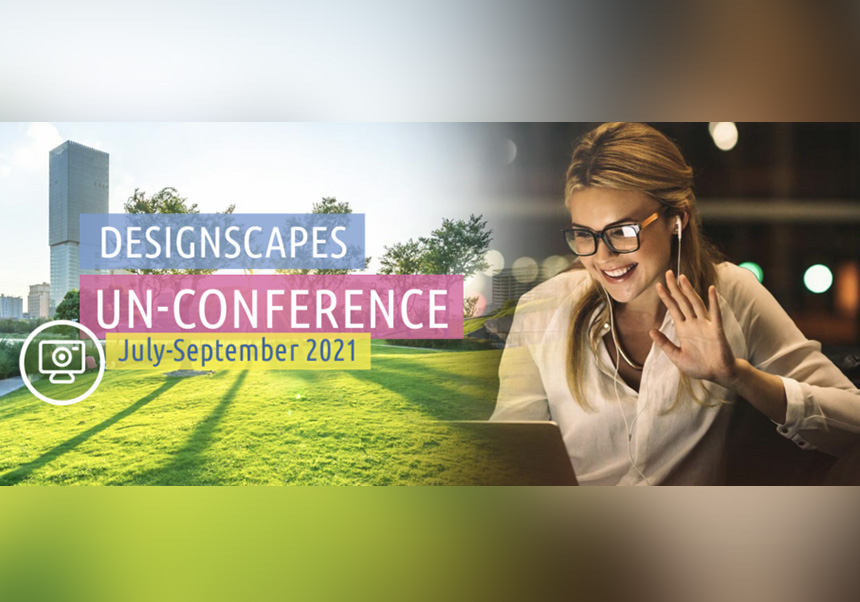
Last Thursday (30/09/2021), the last session of the Designscapes un-conference ended with everyone saying goodbye across the room via video screen, this also implied that the Designscapes project finally came to an end after a four-year journey.
Last Thursday (30/09/2021), the last session of the Designscapes un-conference ended with everyone saying goodbye across the room via video screen, this also implied that the Designscapes project finally came to an end after a four-year journey.
Because of the global COVID-19 pandemic and evolving travel restrictions due to the risk of infection, the Designscapes consortium managed to design and organize a series of online workshops titled “un-conference” over the last three months, in order to summarize the final conclusions of this ambitious European H2020 project and to ensure its legacy in academic, practical and policy areas.
Designscapes un-conference is not a conventionally virtual conference, which just moves on-site meetings to online; instead, it intended to split our final conference into small sessions up to two hours each and advertised them collectively as parts of a single conference thread but leaving far more freedom of attendance over a period of about three months.
The whole un-conference program is composed of a total of 36 webinars, categorized into eight themes, including
- Welcome press launch: Designscapes in a nutshell
- Pilot project presentations, spanning across the months of July, August and September
- Special session: Designscapes and Valencia World Design Capital 2022
- Special session: Designscapes and the New European Bauhaus
- Special session: Designscapes and the EIT KIC on Culture and Creativity
- Designscapes and friends, involving local events organized by /with sister projects
- Special session: The Designscapes White Paper on Design enabled Innovation in European Cities
- Final plenary: The Future of Design enabled Innovation
Particularly, in addition to joining the final plenary discussion, our research unit also (co) organized two special sessions relating to Valencia Wo Design Capital 2022 and the Designscapes White Paper. They also reflected a big achievement that Econcult has made in the last four years. On the one hand, we successfully introduced design enabled innovation to the local design community, helped the city of Valencia to win the bid for World Design Capital 2022 by turning the Designscapes philosophy into the campaign ideas, and empowered the policy design competency of municipal policy makers by supporting the design and establishment of design facilities within the local administration system.
On the other hand, we also translated the results of Designscapes’ research and pilot experiments into policy briefs at EU level by developing four strategies, nine priorities and near 50 policy recommendations, with a view to calling for a new generation of design innovation policy throughout the Europe.
There is no doubt that the four year long project has come to an end, but the future of design innovation in cities remains very bright. The end of the project also means the beginning of a new journey and Econcult will continue to work with Designscapes’ partners to contribute to the relevant debates and research agenda.









